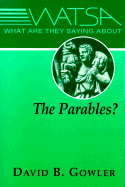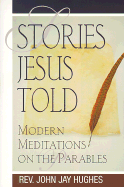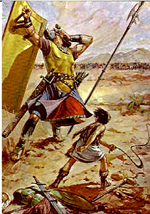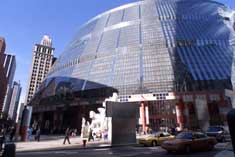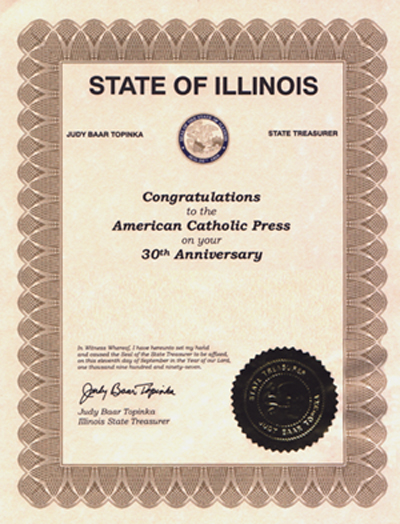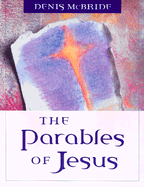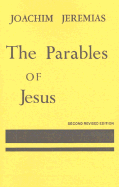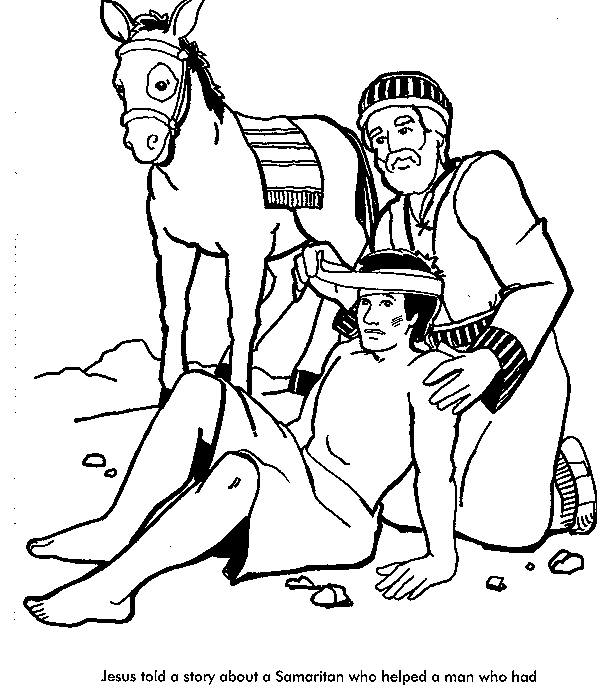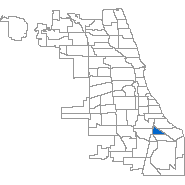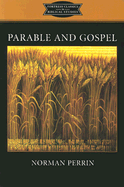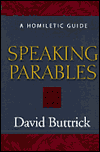Preface to a Parable
|
Here is a brief introduction to A Parable of Victory, proclaimed at the 1997 ACP Benefit Dinner, in honor of David Hartigan.
By their nature, parables are subject to many interpretations. As a form of allegory, a parable requires that the listeners use their imagination. The teller of the tale may freely adapt details and circumstances to fit the situation; the story itself is the main thing, with familiar allusions and figures of speech. Here are some facts that may be useful to you. In 1995, the very existence of American Catholic Press was threatened by the inherent difficulty in winning a property tax exemption and by the bureaucratic procedures of Government. In this case, one had to consider both Cook County and the State of Illinois, as well as the unpredictable decisions of individual judges, who might not always be benevolent. In the "Star Trek" series, the Borg were an alien race that assimilated entire cultures and other beings, into their own culture. The standard threat, on their arrival, was to invite surrender with the words, "Resistance is futile." The Borg were powerful and intelligent; they were a formidable enemy. A good real estate attorney was needed to win this struggle. Several candidates were interviewed, in person. As the best, David Hartigan was chosen. He is a graduate of St. Ignatius, Georgetown University, and Loyola University, all Jesuit schools. David is the younger brother in his family.
Scripture records that after King Saul of Israel was rejected by God, Samuel the priest had to choose a new king. The Lord sent Samuel to Bethlehem, in Judah, to the north, to anoint the chosen one. Samuel met seven sons of Jesse, but none of them was to be king. However, before the banquet began, Samuel sent for the youngest son of Jesse, who was tending sheep. The young man was handsome indeed; his name was David. The Lord singled him out, and Samuel anointed him in the presence of his brothers. From that day forward, the Spirit of the Lord was given to him. (I Samuel 16)
As leader of the people, David did battle with Goliath of the Philistines. The Israelites were terror-stricken. But David fought in the name of the Lord. He defeated Goliath and, with him, the Philistines. (I Samuel 17) In any case, the State of Illinois Building in the loop was designed by the Chicago architect, Helmut Jahn. State officials have their offices in this building. The Leaflet Missal prayerbook is distributed to elderly people, as a work of charity: "Let us help the elderly." Warner Saunder’s talk September 13th was intended to help combat racism. He spoke on the value of diversity: "Let us fight racism." The "young prince who won the victory," as you know, is David. Judy Baar Topinka, Treasurer of the State of Illinois, issued a congratulatory document; however, she had a long-planned trip scheduled, to Poland. She couldn't come to the ACP Benefit.
The term pooh-bah is derived from a character in The Mikado, a Gilbert and Sullivan comic opera of 1885; such a person bore the title "Lord-High-Everything-Else." So, today the term refers to someone with many public or private offices or someone in high position or of great influence. Since the reference is facetious, explaining it takes all the fun out of it. In our own time, bishops wear miters during the Mass. Miters are pointed hats they periodically put on, remove, and put back on, for reasons known to them. Bishops also wear beanies. On September 13th, Archbishop Francis George scheduled a dinner of his own for his cabinet, including the auxiliary bishops. Neither of the two supportive bishops, consequently, were able to attend the September 13th ACP Benefit. Archbishop George is supreme. "When you give a lunch or dinner, do not invite your friends or brothers or relatives or wealthy neighbors. They might invite you in return and thus repay you. No, when you have a reception, invite beggars and the crippled, the lame, and the blind." (Luke 14:12-13) "A man was giving a large dinner and he invited many. At dinner time he sent his servant to say to those invited, 'Come along, everything is ready now.' But they began to excuse themselves, one and all. The first one said to the servant, 'I have bought some land and must go out and inspect it. Please excuse me.' Another said, 'I have bought five yoke of oxen and I am going out to test them. Please excuse me.' A third said, 'I am newly married and so I cannot come.' The servant returning reported all this to the master. The master of the house grew angry at the account. He said to his servant, 'Go out quickly into the streets and alleys of the town and bring in the poor and the crippled, the blind and lame.' " (Luke 14:16-21) The Samaritans were an ethnic group that was rejected and despised by Jewish people. In fact, devout Jews would not even speak with Samaritans. Jesus told more than one parable about groups of individuals, in which the hero was a Samaritan; these were lepers, who should have been grateful for healing, and those who passed by a victim. In the United States, African Americans were slaves from the beginning; by the Constitution, they were property of their owners, until the Civil War. Qui potest capere, capiat. John Stroger is, among other things, Forest Preserve Commissioner. He lives in the Chicago neighborhood of Avalon Park, also known as Avalon. When the ACP banquet began, at Flossmoor Country Club, President Stroger entered and sat at his assigned table. However, David Hartigan saw John Stroger there and invited him to come up and sit at the head table, table number one, David’s table. President Stroger was up for re-election in November. "When you are invited by someone to a wedding party, do not sit in the place of honor in case some greater dignitary has been invited. Then the host might come and say to you, 'Make room for this man," and you would have to proceed shamefacedly to the lowest place. What you should do when you have been invited is go and sit in the lowest place, so that when your host approaches you he will say, 'My friend, come up higher.' This will win you the esteem of your fellow guests. For everyone who exalts himself shall be humbled and he who humbles himself shall be exalted." (Luke 14:8-11) This text is fulfilled in your hearing.
The disciples approached him and said, “Why do you speak to them in parables?” He said to them in reply, “Because knowledge of the mysteries of the kingdom of heaven has been granted to you; but to them it has not been granted…This is why I speak to them in parables, because they ‘look but do not see; they hear but do not understand.’” (Mt 13:10-15; Mk 4:10-12; Lk 8:9-10)
With many such parables he spoke the word to them as they were able to understand it. Without parables he did not speak to them; but to his disciples he explained everything in private. (Mk 4:33-34)
The Gratiam Dei Award is conferred at 8 p.m. After a brief litany, Bishop Frank Kane gives a solemn blessing. The master of ceremonies, Rick Thiernau, keeps things moving well, throughout the evening. In total, there are 120 guests present, a great tribute to the honoree.
Why? Who? What? How to GiveBenefit Archives:1989 1991 1992 1993 1994 1995 1996 1997 1998 1999 2000 2001 2002 2003 2004 2005 2006 2007 2008 2009 2010 2011 2012 2013 2014 2015 2016 2017 2018 2019 2021 2022Copyright © 1999
American Catholic Press. All rights reserved. |
